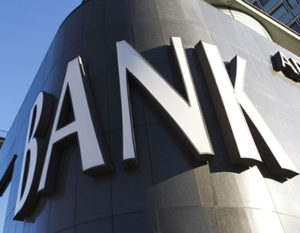COVID-19 said to have slowed down banking business
 Mr. John Awuah, the Deputy Chief Executive Officer of Ghana Association of Bankers, says the novel coronavirus – COVID-19 pandemic, has slowed down the banking business and increased credit risk impact on loan performance.
Mr. John Awuah, the Deputy Chief Executive Officer of Ghana Association of Bankers, says the novel coronavirus – COVID-19 pandemic, has slowed down the banking business and increased credit risk impact on loan performance.
The economy and the banking sector, he said, had been hit hard by the respiratory illness as economic activities had taken a downturn with growth now projected to be 1.5 per cent compared with the earlier forecast of 6.5 per cent.
He added that some sectors of the economy – aviation, hotels, resorts, bars and restaurants, had had zero cash inflows.
Mr. Awuah said this at the Second Edition of Webinars organised by Integrity Magazine, a subsidiary of Krif Ghana Limited, on the theme: “Effects of COVID -19 On Corporate Ghana- The Banking Sector- Part 1”.
He predicted that: “It will take much longer for businesses and households to return to normal operations with its consequential impact on the ability to perform on existing obligations resulting in heightened probability of increased non- performing loans”.
He outlined some post-Covid-19 activities that should be undertaken by the banks – credit expansion to productive sectors such as the manufacturing, small and medium enterprise financing, and investing heavily to enhance Fintech capabilities.
He said banks had a duty to anchor the economy by cautiously continuing with credit expansion to productive sectors among others.
They had already cut interest rates by between 1.5 per cent and 3.5 per cent. Added to that, was the grant of payment holidays totaling GHS1.6 billion to selected customers with specific needs during this COVID-19 period.
He called for the Government to introduce policy initiatives to redirect the trajectory of credit expansion.
The Reverend Mrs. Patricia Sappor, President of the Chartered Institute of Bankers, said the banks had begun to aggressively drive the digital agenda by encouraging customers to jump onto the digital train using channels like Mobile Apps, USSDs, Internet Banking, and ATMs to facilitate transactions.
“One of the key impacts of the current pandemic is the emphasis on social/physical distancing and contactless payment options.
“The situation presents financial institutions with the opportunity for digital transformation both at the front and back office levels.
“This, if done effectively, could result in efficient service delivery, quicker turn-around time and improvement in the overall service experience for bank customers,” she noted.
The Rev. Sappor explained that investing in large and expensive edifices to accommodate employees could be curtailed as banks had found ways for workers to work more remotely and digitally.
“This will reduce the operating costs of banks since lesser expenses on utilities and depreciation are incurred”.
She asked the banks to re-strategize and re-prioritize projects due to the COVID-19 pandemic.
“Banks can no longer go back to their old ways of operating since the needs and psyche of customers have changed significantly as a result of COVID-19.”
“In a nutshell, low transactional volumes will result in low profitability, low deposits, and significantly, high Non-Performing Loans and high operating costs are some of the adverse impacts to be envisaged by financial entities as a result of COVID-19.”
She encouraged them to proactively stay in touch and build good relationships with their clients supporting them in these difficult times.
The Rev. Kennedy Okosun, the Publisher and Editor-in-Chief of the Integrity Magazine, called on stakeholders to find out how banks and other financial institutions in Ghana could better protect themselves from the harsh effects of the lockdown and still play their important role as “engine of growth.”
He said through such webinars, solutions would be proposed as to the way forward for policy makers and industry players to reduce the biting effect of the Covid-19 on corporate Ghana.
Source: GNA
